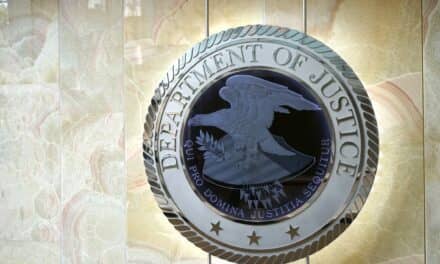Whistleblower Donna Nichols will receive 20% of nearly $300,000 repaid to taxpayers in the US government’s settlement of fraud claims against a Florida sleep-disorder clinic. The clinic was accused of pretending to diagnose sleep problems with equipment that was either broken or nonexistent—and of hiring local strippers to work, without formal training, as sleep technicians.
The Employment Law Group law firm represented Nichols, who says she was fired from her administrative role at the sleep clinic in 2012 after questioning its practices. Her share of the settlement is a reward for filing the initial lawsuit that claimed—on behalf of US taxpayers—the clinic had fraudulently billed federal programs such as Medicare and Medicaid.
The US Department of Justice this month announced the terms of its deal with The Sleep Medicine Center (SMC), based in Palatka, Fla; with SMC’s owner Hubert Zachary; and with George Restea, a doctor who acted as a medical director for SMC. In addition to paying the government, both SMC and Zachary were barred from receiving money from any federal health program for at least 8 years.
Two more SMC-affiliated doctors did not settle with the government, and the Justice Department now will take over Nichols’ case against George Young and John DeCerce. The men are accused of enabling SMC’s fraud by attaching their names to equipment orders for patients they never saw—or to “sleep studies” conducted by unqualified staff using broken machines.
Nichols, meanwhile, will continue her own claim against SMC and Zachary for illegally firing her after she raised concerns.
“Donna deserves enormous credit for doing the right thing,” says David L. Scher, a principal of The Employment Law Group and lead attorney on the case, in a release. “This so-called sleep clinic is a toxic operation that victimized thousands of Florida patients and their insurers, including the United States of America, using made-up data to support fraudulent medical orders and more—all for financial gain. Someone had to expose what was going on, and Donna was brave enough to step up.”
Nichols blew the whistle on her former employer in 2012 by filing a complaint under the federal False Claims Act. That statute, originally signed into law by President Abraham Lincoln in 1863, makes it illegal to deceive the federal government for financial gain.
The law includes a “qui tam” provision that allows whistleblowers to file suit on behalf of the government and—if they prevail—to receive a share of the proceeds. The statute also provides damages for any illegal punishment of whistleblowers, including firing or other workplace retaliation.
“What Donna did here is to defend the whole field of sleep medicine,” says R. Scott Oswald, managing principal of The Employment Law Group. “Patients take a leap of faith when they visit a sleep clinic—for the diagnosis of sleep apnea, for instance. While they sleep, they must trust that they’re being monitored by professionals; that they’re hooked up to a machine that is gathering accurate data; and that their results will be interpreted by a licensed doctor. SMC broke all of those rules—and Donna held them to account. The community owes her a debt of gratitude.”


